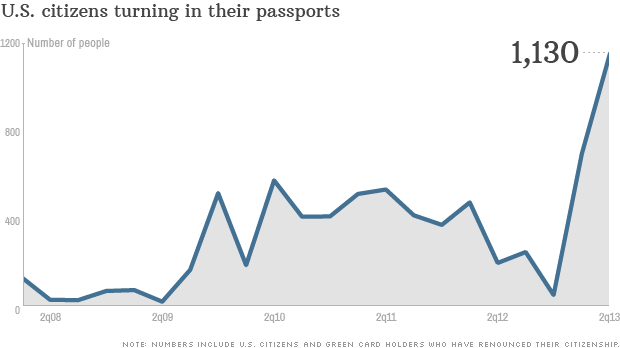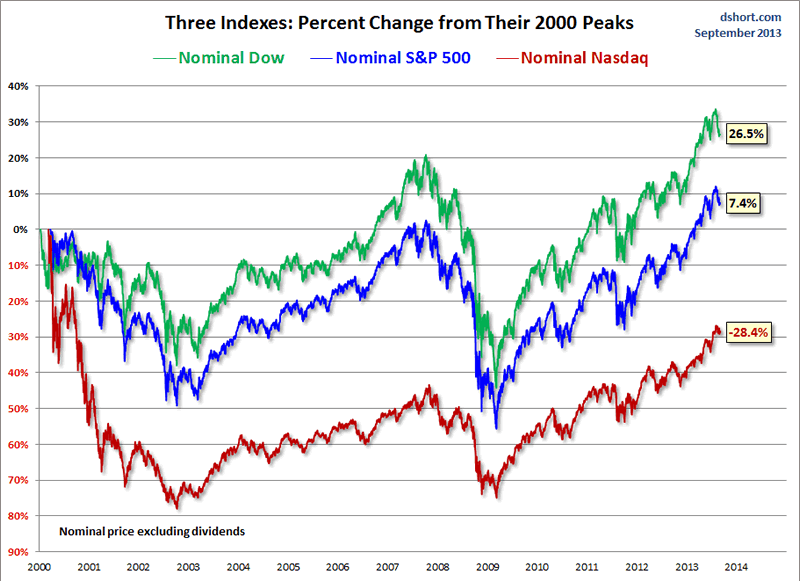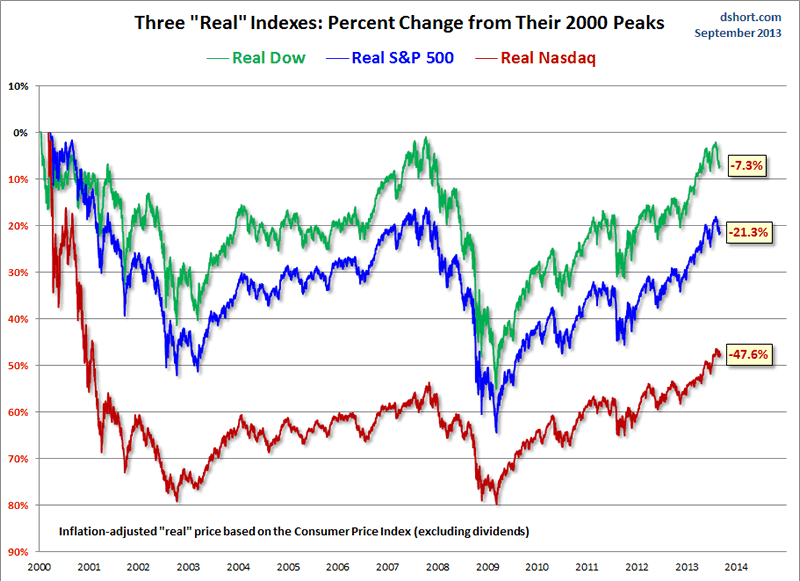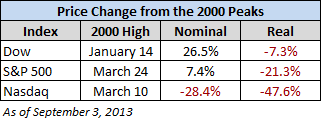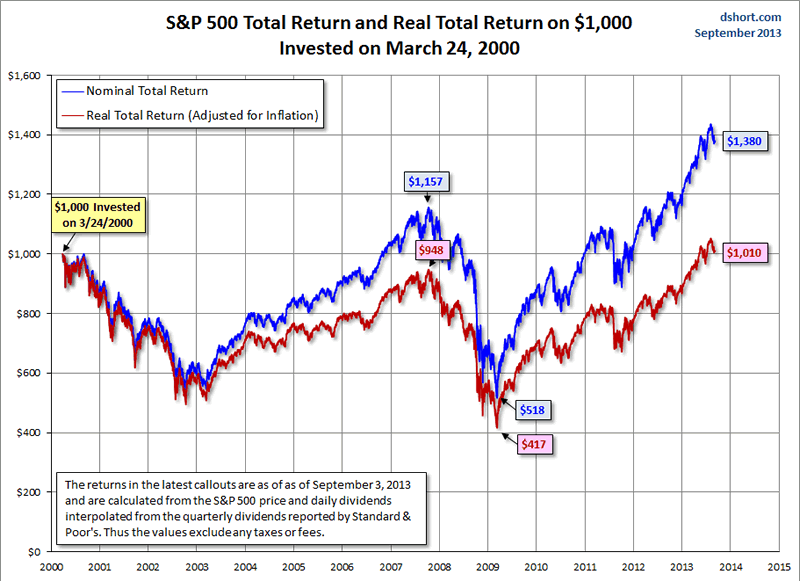In the space of 20 minutes on the last Friday in June, the value of the U.S. dollar jumped 0.57 percent against its Canadian counterpart, the biggest move in a month. Within an hour, two-thirds of that gain had melted away.
The same pattern -- a sudden surge minutes before 4 p.m. in
London on the last trading day of the month, followed by a quick reversal -- occurred 31 percent of the time across 14 currency pairs over two years, according to data compiled by Bloomberg. For the most frequently traded pairs, such as euro-dollar, it happened about half the time, the data show.
The recurring spikes take place at the same time financial benchmarks known as the WM/
Reuters (TRI) rates are set based on those trades. Now fund managers and scholars say the patterns look like an attempt by currency dealers to manipulate the rates, distorting the value of trillions of dollars of investments in funds that track global indexes.
Bloomberg News reported in June that dealers shared information and used client orders to move the rates to boost trading profit. The U.K. Financial Conduct Authority is reviewing the allegations, a spokesman said.
“We see enormous
spikes,” said Michael DuCharme, head of foreign exchange at Seattle-based Russell Investments, which traded $420 billion of foreign currency last year for its own funds and institutional investors. “Then, shortly after 4 p.m., it just reverts back to what seems to have been the market rate. It adds to the suspicion that things aren’t right.”
Global Probes
Authorities around the world are investigating the abuse of financial benchmarks by large banks that play a central role in setting them.
Barclays Plc (BARC),
Royal Bank of Scotland Group Plc and
UBS AG (UBSN) were fined a combined $2.5 billion for rigging the London interbank offered rate, or Libor, used to price $300 trillion of securities from
student loans to mortgages. More than a dozen banks have been subpoenaed by the U.S. Commodity Futures Trading Commission over allegations traders worked with brokers at
ICAP Plc (IAP) to manipulate ISDAfix, a benchmark used in interest-rate derivatives. ICAP Chief Executive Officer
Michael Spencer said in May that an internal probe found no evidence of wrongdoing.
Investors and consultants interviewed by Bloomberg News say dealers at banks, which dominate the $4.7 trillion-a-day
currency market, may be executing a large number of trades over a short period to move the rate to their advantage, a practice known as banging the close. Because the 4 p.m. benchmark determines how much profit dealers make on the positions they’ve taken in the preceding hour, there’s an incentive to influence the rate, DuCharme said. Dealers say they have to trade during the window to meet client demand and minimize their own risk.
Currency Patterns
“There are some patterns in currencies that are very similar to what I have seen in other markets, such as the way the price-fixings’ effects disappear so often by the following day,” said Rosa Abrantes-Metz, a professor at New York University’s Stern School of Business, whose
August 2008 paper, “Libor Manipulation?,” helped trigger the probe into the rigging of benchmark
interest rates. “You also see large price moves at a time of day when volume of trading is high and hence the market is very liquid. If I were a regulator, it’s certainly something I would consider taking a look at.”
WM/Reuters rates, which determine what many pension funds and money managers pay for their foreign exchange, are published hourly for 160 currencies and half-hourly for the 21 most-traded. The
benchmarks are the median of all trades in a minute-long period starting 30 seconds before the beginning of each half-hour. Rates for less-widely traded currencies are based on quotes during a two-minute window.
London Close
Benchmark providers such as
FTSE Group and MSCI Inc. base daily valuations of indexes spanning different currencies on the 4 p.m. WM/Reuters rates, known as the London close.
Index funds, which track global indexes such as the MSCI World Index, also trade at the rates to reduce tracking error, or the drag on funds’ performance relative to the securities they follow caused by currency fluctuations.
The data are collected and distributed by World Markets Co., a unit of Boston-based
State Street Corp. (STT), and Thomson Reuters Corp. Bloomberg LP, the parent company of Bloomberg News, competes with Thomson Reuters and ICAP in providing news and information as well as currency-trading systems.
Reuters and World Markets referred requests for comment to State Street. Noreen Shah, a spokeswoman for the custody bank in London, said in an e-mail that the rates are derived from actual trades and the benchmark is calculated anonymously, with multiple review processes to monitor the quality of the data.
“WM supports efforts by the industry to determine and address any alleged disruptive behavior by market participants and we welcome further discussions on these issues and what preventative measures can be adopted,” Shah said.
Opaque Market
The foreign-exchange market is one of the least regulated and most opaque in the financial system. It’s also concentrated, with four banks accounting for more than half of all trading, according to a May survey by Euromoney Institutional Investor Plc.
Deutsche Bank AG (DBK) is No. 1 with a 15 percent share, followed by
Citigroup Inc. (C) with almost 15 percent and London-based Barclays and Switzerland’s UBS, which both have 10 percent. All four banks declined to comment.
Because they receive clients’ orders in advance of the close, and some traders discuss orders with counterparts at other firms, banks have an insight into the future direction of rates, five dealers interviewed in June said. That allows them to maximize profits on their clients’ orders and sometimes make their own additional bets, according to the dealers, who asked not to be identified because the practice is controversial.
‘Incredibly Large’
Even small distortions in foreign-exchange rates can cost investors hundreds of millions of dollars a year, eating into returns for savers and retirees, said James Cochrane, director of analytics at New York-based Investment Technology Group Inc., which advises companies and investors on executing trades.
“What started out as a simple benchmarking tool has become something incredibly large, and there’s no regulatory body looking after it,” said Cochrane, a former foreign-exchange salesman at Deutsche Bank who has worked at
Thomson Reuters. “Every basis point is worth a tremendous amount of money.”
An investor seeking to change 1 billion Canadian dollars ($950 million) into U.S. currency on June 28 would have received $5.4 million less had the trade been made at the WM/Reuters rate instead of the spot rate 20 minutes before the 4 p.m. window.
“Funds that consistently trade using the WM/Reuters fix are basically trading against themselves, and their portfolio is taking a hit,” Cochrane said.
FCA Complaint
One of Europe’s largest money managers, who invests on behalf of pension holders and savers, has complained to the FCA, alleging the rate is being manipulated, said a person with knowledge of the matter who asked that neither he nor the firm be identified because he wasn’t authorized to speak publicly.
The regulator sent requests for information to four banks, including Frankfurt-based Deutsche Bank and New York-based Citigroup, according to a person with knowledge of the matter.
Chris Hamilton, a spokesman for the FCA, declined to comment, as did spokesmen for Deutsche Bank and Citigroup.
Bloomberg News counted how many times spikes of at least 0.2 percent occurred in the 30 minutes before 4 p.m. for 14 currency pairs on the last working day of each month from July 2011 through June 2013. To qualify, the move had to be one of the three biggest of the day and have reversed by at least half within four hours, to exclude any longer-lasting movements.
The sample was made up of currency pairs ranging from the most liquid, such as euro-dollar, to less-widely traded ones such as the euro to the Polish zloty.
Pounds, Kronor
End-of-month spikes of at least 0.2 percent were more prevalent for some pairs, the data show. They occurred about half the time in the exchange rates for U.S. dollars and British pounds and for euros and Swedish kronor. In other pairs, including dollar-Brazilian real and euro-Swiss franc, the moves occurred about twice a year on average.
Such spikes should be expected at the end of the month because of a correlation between equities and foreign exchange, said two foreign-exchange traders who asked not to be identified because they weren’t authorized to speak publicly on behalf of their firms. A large proportion of trading at that time is generated by index funds, which buy and sell stocks or bonds to match an underlying basket of securities, the traders said.
Banks that have agreed to make transactions for funds at the 4 p.m. WM/Reuters close need to push through the bulk of their trades during the window where possible to minimize losses from market movements, the traders said. That leads to a surge in trading volume, which can intensify any moves.
Index Funds
For 10 major currency pairs, the minutes surrounding the 4 p.m. London close are the busiest for trading at the end of the month, quarter and year, according to Michael Melvin and John Prins at BlackRock Inc. who examined trading data from the Reuters and Electronic Broking Services trading platforms from May 2, 2005, to March 12, 2010.
Reuters and ICAP, which owns EBS, declined to provide data on intraday trading volumes for this article.
Index funds, which manage $3.6 trillion according to Morningstar Inc., typically place the bulk of their orders with banks on the last day of the month as they adjust rolling currency hedges to reflect relative movements between equity indexes in different countries and invest inflows from customers over the previous 30 days. Most requests are placed in the hour preceding the 4 p.m. London window, and banks agree to trade at the benchmark rate, regardless of later price moves.
Opposite Effect
“Since the major fix-market-making banks know their fixing orders in advance of 4 p.m., they can ‘pre-position’ or take positions for themselves prior to the attempt to move prices in their favor,” Melvin and Prins wrote in “Equity Hedging and Exchange Rates at the London 4 P.M. Fix,” an update of a report for a 2011 Munich conference. “The large market-makers are adept at trading in advance of the fix to push prices in their favor so that the fixing trades are profitable on average.”
Recurring price spikes, particularly during busy times such as the end of the month, can indicate market manipulation and possibly collusion, according to Abrantes-Metz.
“If the volume of trading is high, each trade has less importance in the overall market and is less likely to impact the final price,” said Abrantes-Metz, who’s also a principal at Chicago-based Global Economics Group Inc. and a World Bank consultant. “That’s exactly the opposite of what we’re seeing here. That could be a signal of a problem in this market.”
‘Massive Trades’
U.S. regulators have sanctioned firms for banging the close in other markets. The CFTC fined hedge-fund firm Moore Capital Management LP $25 million in April 2010 for attempting to manipulate the settlement price of platinum and palladium futures. The regulator ordered Dutch trading firm Optiver BV to pay $14 million in April 2012 for trying to move
oil prices by executing a large number of trades at the end of the day.
Melvin, head of currency and fixed-income research at BlackRock’s global markets strategies group in San Francisco, and Prins, a vice president in the group, said that because banks could lose money if the market moves against them, their profit may be viewed as compensation for the risk they assume. Both declined to comment beyond their report.
“Part of the problem is it’s all concentrated over a 60-second window, which gives such an opportunity to bang through massive trades,” said
Mark Taylor, dean of the Warwick Business School in Coventry, England, and a former managing director at New York-based BlackRock.
World Markets, the administrator of the benchmark, could extend the periods during which the rates are set to 10 minutes or use randomly selected 60-second windows each day, said Taylor, who began his career as a currency trader in London.
‘Fiduciary Duty’
Trading at the highly volatile 4 p.m. close instead of at a daily weighted average could erase 5 percentage points of performance annually for a fund tracking the MSCI World Index, according to a May 2010 report by Paul Aston, then an analyst at
Morgan Stanley. (MS) For an asset manager trading $10 billion of currencies, that equates to $500 million that would otherwise be in the hands of investors. Aston, now at TD Securities Inc. in New York, declined to comment.
Fund managers rarely complain about getting a bad deal because they’re assessed on their ability to track an index rather than minimize trading costs, according to consultants hired by companies and investors to help execute trades efficiently.
“Where possible, I would always advise clients not to trade at the fix -- but minimizing tracking error is so important to them,” said Russell’s DuCharme. “That doesn’t seem to be the right attitude to take when you have a fiduciary duty to seek the best execution for pension holders.”
